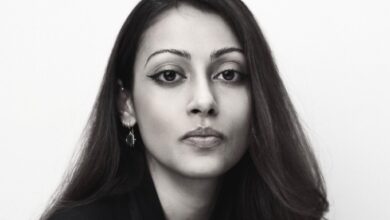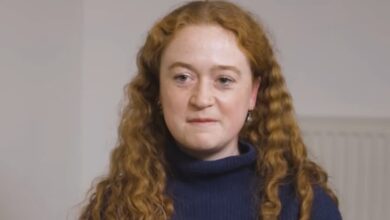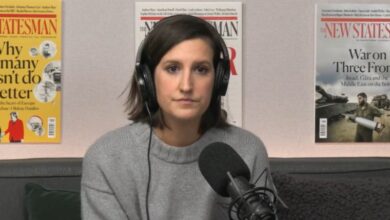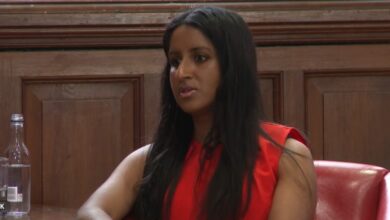Carole Walker: The Voice of British Political Journalism
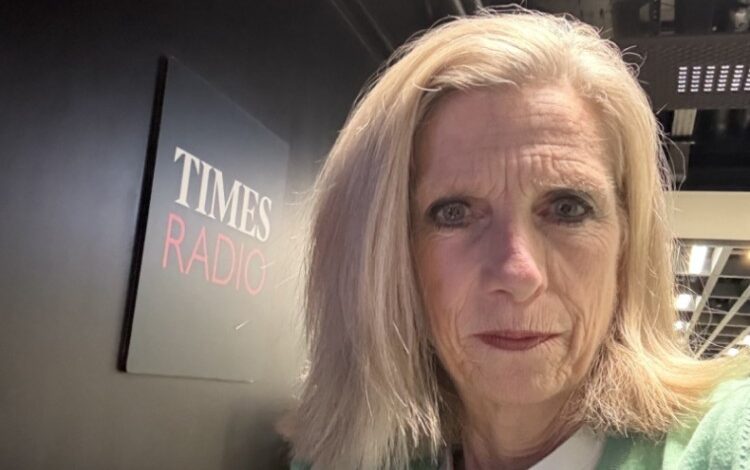
Carole Walker is a renowned British journalist, political correspondent, and broadcaster whose distinguished career spans more than three decades. Known for her sharp political insights, calm authority, and commitment to truthful reporting, she has become one of the most respected figures in UK journalism. From her extensive tenure at the BBC to her current freelance work as a political analyst and Times Radio presenter, Carole Walker’s journey is a testament to integrity, experience, and adaptability in an evolving media landscape.
Early Life and Education
Carole Walker was born and educated in Norfolk, England. She attended North Walsham High School before pursuing journalism at the London College of Printing. Her early education in Norfolk instilled in her a deep sense of community and curiosity about how politics and policy affect everyday lives. This foundation became the cornerstone of her later work, where she would hold political leaders accountable and translate complex government decisions into stories that resonated with the public.
The Beginning of a Groundbreaking Career
Carole Walker began her journalism career in the mid-1980s, joining the BBC in 1985 as a News Correspondent. During her early years, she covered major international and domestic stories that tested her reporting skills and resilience. Her coverage included the first Gulf War, the revolution in Moscow, the break-up of the Soviet Union, and the civil war in the Balkans.
These were defining moments in her career, as they placed her at the heart of global events where truth and clarity were vital. Her ability to report fearlessly from conflict zones earned her recognition as a journalist with both courage and credibility.
Carole Walker at the BBC: A Legacy of Political Reporting
The Rise to Political Correspondent
In January 1996, Carole Walker became a BBC Political Correspondent, a position she held for over two decades until March 2017. Based in Westminster, she covered the intricate world of British politics with precision and insight. She reported on six general elections, the EU referendum, and the rise and fall of several governments, including Conservative, Labour, and coalition administrations.
Her deep understanding of government policies, parliamentary debates, and political personalities allowed her to deliver balanced, informative, and accessible political coverage. Viewers and listeners came to trust her reporting for its fairness and clarity, especially during high-stakes moments like leadership contests, resignations, and policy crises.
Coverage of Major Events
Throughout her time at the BBC, Carole Walker covered some of the most transformative events in modern British history. From the Blair years to Brexit, she was present at the forefront of national political discourse. She also travelled extensively with British Prime Ministers to Iraq and Afghanistan, providing on-the-ground insights into foreign policy and international relations.
Her reporting extended beyond television, as she contributed regularly to BBC Radio and Online, offering commentary and analysis that informed the public and influenced political understanding.
Presenter and Broadcaster
Carole Walker’s talents extended beyond field reporting. She became a familiar face and voice as a presenter on the BBC News Channel, where she anchored live coverage of political developments, breaking news, and special events. She also presented the Westminster Hour on BBC Radio 4, a programme known for its in-depth political analysis and interviews with key figures in Parliament.
Her authoritative yet approachable presentation style made her one of the BBC’s most trusted voices in political journalism.
Advocacy and Challenges
Carole Walker’s long-standing commitment to journalism was not without challenges. In 2011, she publicly criticised the BBC for its treatment of older female broadcasters, speaking out on issues of ageism within the organisation. Her candidness sparked an important conversation about representation and diversity in the media industry. By raising her voice, she became not only a respected journalist but also an advocate for equality and fairness in the newsroom.
Transition to Freelance Journalism
After more than 30 years at the BBC, Carole Walker left the corporation in 2017 and began working as a freelance political analyst and commentator. Her transition to self-employment allowed her to diversify her media portfolio while maintaining her journalistic independence.
Freelance Portfolio
Since becoming self-employed, Carole Walker has collaborated with several major media outlets, including:
-
CNN – as a political analyst providing British political insights.
-
BBC News Channel – continuing to appear as a presenter and contributor.
-
BBC Regional Programmes – offering political commentary and analysis.
-
Sky News and Talk Radio – appearing as a political guest and panellist.
-
Monocle 24 – discussing international affairs and UK politics.
-
The Times Red Box – contributing political columns and analysis pieces.
Her broad experience and network of political contacts have made her a sought-after commentator on British politics, government policy, and leadership dynamics.
Carole Walker at Times Radio
Carole Walker joined Times Radio in June 2020, where she presents a late-evening show featuring political analysis, interviews, and listener engagement. Her programme combines her deep knowledge of Westminster with accessible conversations that help audiences understand the context behind political headlines.
On air, she is known for her calm professionalism, sharp questioning, and ability to bring clarity to complex political debates. Her move to Times Radio reflects her adaptability and her understanding of how journalism must evolve in the digital era.
Author: Lobby Life – Inside Westminster’s Secret Society
Carole Walker is also an author. Her book, Lobby Life – Inside Westminster’s Secret Society, offers readers a rare insight into the inner workings of British political reporting. It explores the traditions, relationships, and ethical dilemmas that define the Westminster lobby — the group of political journalists accredited to cover Parliament.
The book combines Carole’s first-hand experience with her reflections on the evolving relationship between politicians and the media. It highlights her commitment to transparency, journalistic integrity, and the public’s right to know.
Personal Life and Interests
Carole Walker describes herself as a “proud mother, wife and Norfolk girl.” Despite her busy career, she remains grounded and connected to her roots. Her upbringing in Norfolk continues to influence her values and worldview, shaping her balanced approach to both professional and personal life.
Her social media presence, particularly on X (formerly Twitter) under the handle @carolewalkercw, shows her active engagement with political events, media discussions, and journalistic dialogue. With over 11,000 followers, she remains a respected and influential voice in British political media.
Carole Walker’s Legacy in Journalism
Influence and Recognition
Carole Walker’s career represents the highest standards of British journalism — integrity, balance, and perseverance. Her contribution to political reporting has inspired younger journalists and set benchmarks for accuracy and fairness in news.
The Power of Experience
With over 30 years of frontline reporting and analysis, she has witnessed and documented the evolution of British politics and the media industry itself. From print to television, and now to digital radio and online platforms, Carole Walker has adapted at every stage, maintaining her relevance and authority.
Conclusion
Carole Walker stands as one of Britain’s most accomplished and respected journalists. Her journey from Norfolk schoolgirl to a leading figure in national broadcasting encapsulates a career built on hard work, integrity, and an unwavering commitment to truth.
Through her decades at the BBC, her work as a freelancer, her authorship, and her ongoing role at Times Radio, Carole Walker continues to shape how the public understands politics. Her voice — calm, clear, and informed — remains a guiding force in British journalism.
